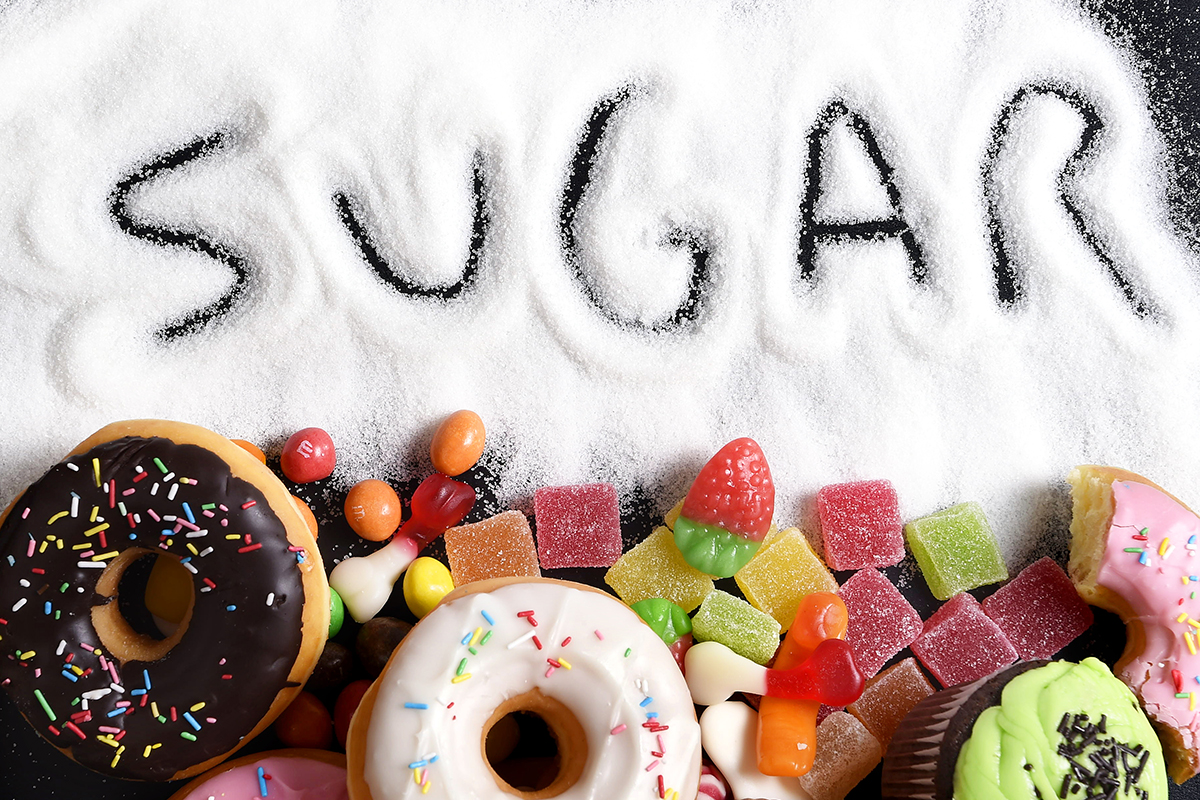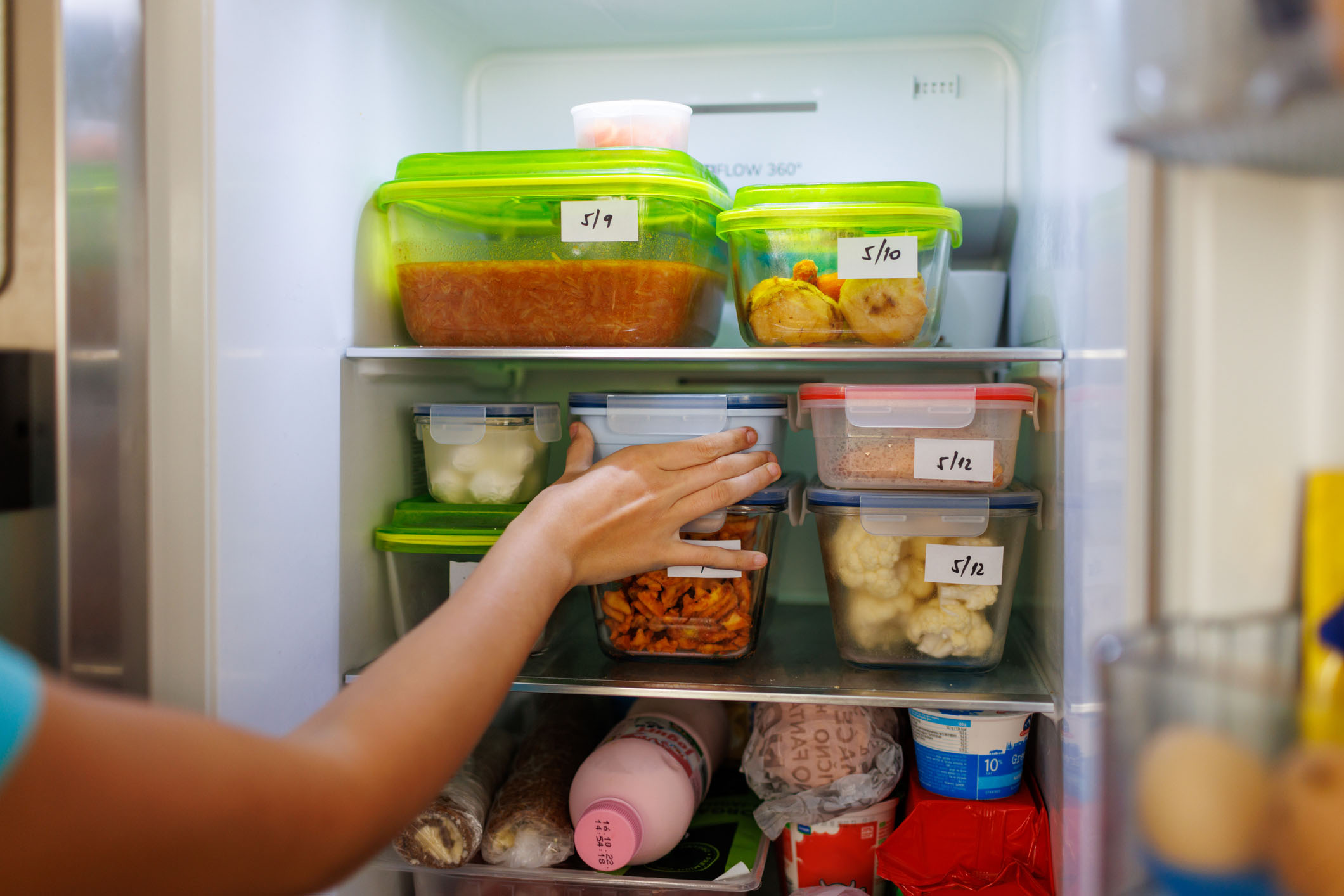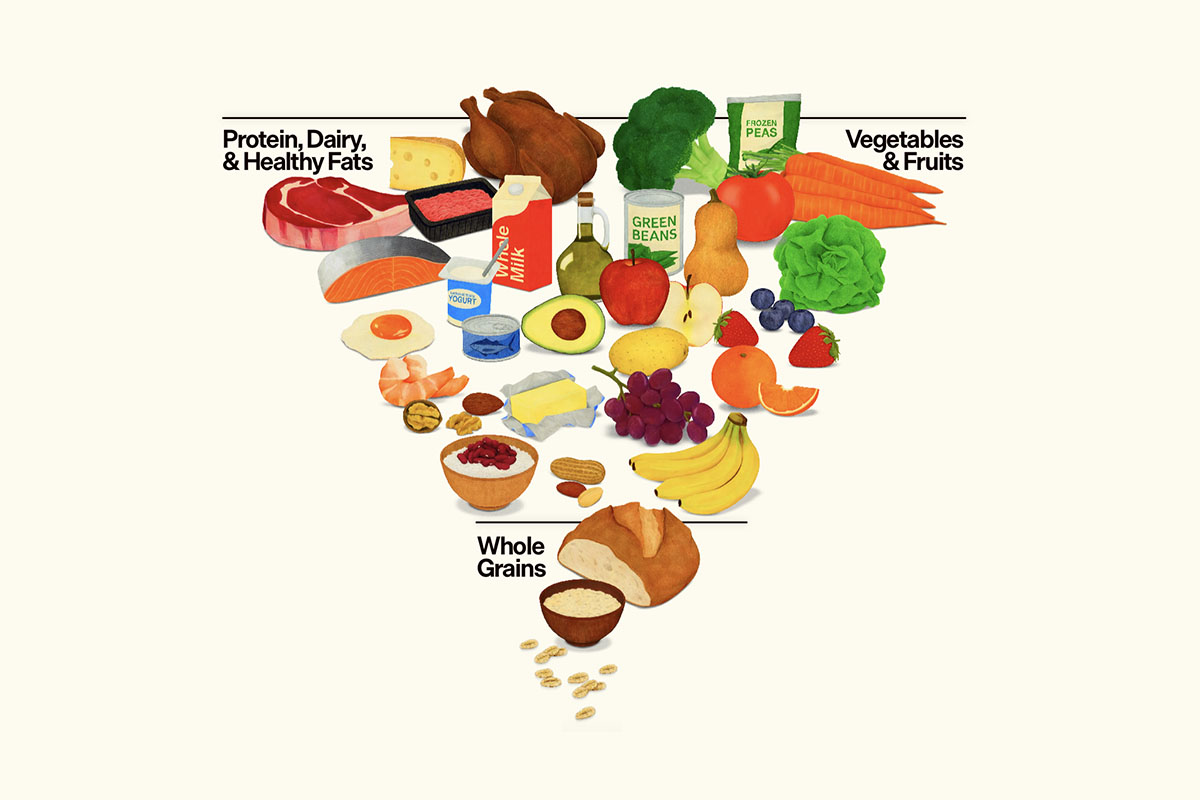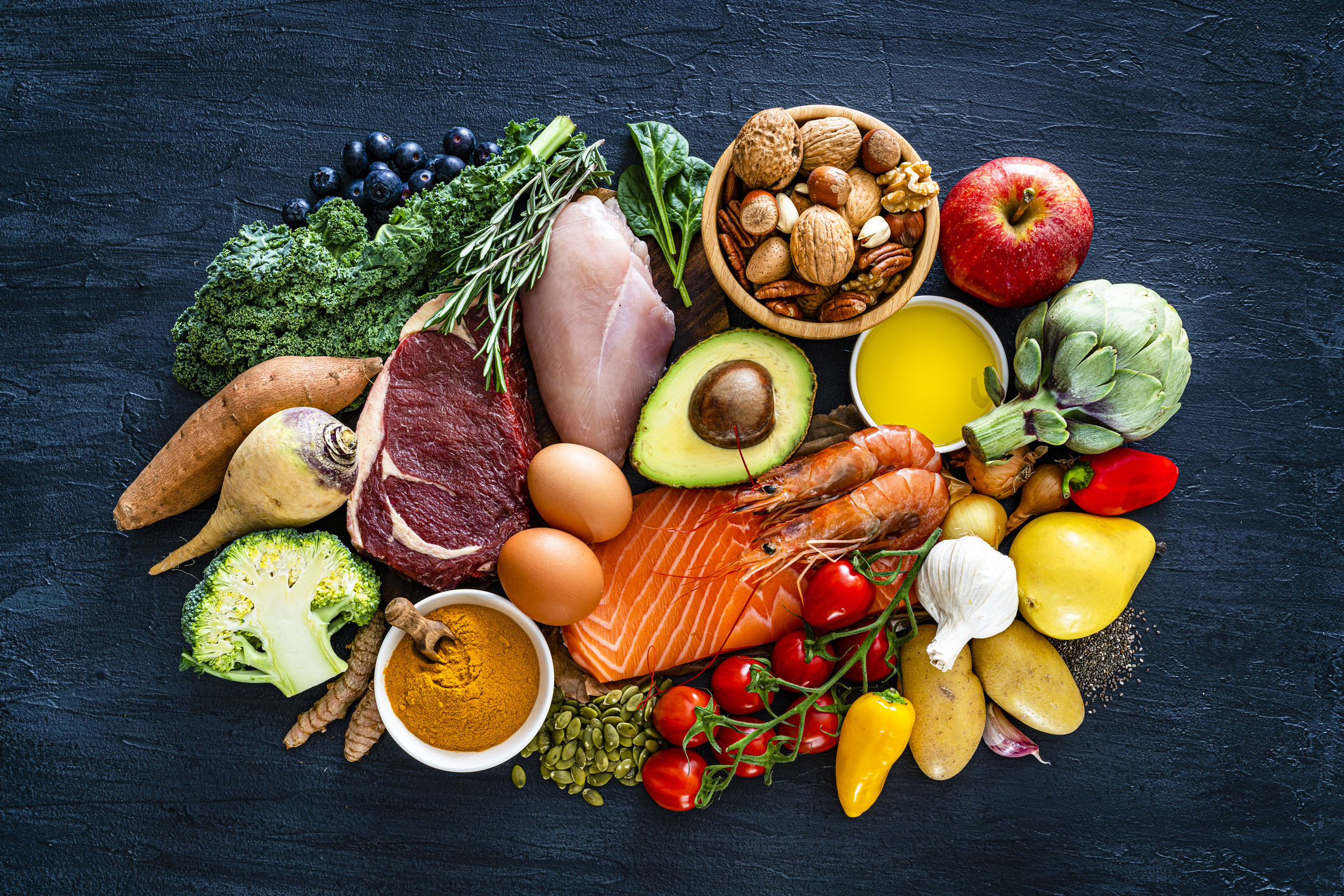Undoubtedly, one of this year’s most popular New Year’s resolutions will be to “cut down on sugar”—especially after the non-stop potlatch most of us have experienced in December. But it’s not easy, because one of the most fundamental hard-wired human drives is to seek out readily-available high-test carbohydrate fuel—an evolutionary adaptation that facilitated survival in times of scant resources, when every calorie was hard-earned.
But no longer do we need to scale sheer cliffs and withstand painful stings to raid an enticing beehive for its honey, as did our hunter-gatherer forebears; instead, sugar is ubiquitous and requires no exertion to sate our cravings.
Instead, we have to impose science-based restraints on our biologic inclinations. Here are some of the most promising:
Curb your insulin: Sugar and carb consumption invokes an insulin response; the more you consume, the more insulin is required to dispose of excess glucose. Unfortunately, insulin promotes storage of excess calories as fat. It also drives blood sugar down, resulting in hypoglycemia, which intensifies sugar cravings. The result is a blood sugar roller coaster, with ever-higher peaks and valleys. Ultimately, insulin resistance develops, and glucose ascends into the diabetic range. Part of a program to tame inordinate sugar cravings involves reining in sky-high insulin by gradually reducing all carbs. It’ll make it easier to jettison sugar when your elevated insulin is no longer driving your sweet tooth.
Add protein: The “Protein Balance” theory of weight control posits that humans seek a requisite amount of protein from their diets. When bio-available protein is scant in foods—as when people subsist on starchy fare while eschewing reliable sources of essential amino acids from meat, fish, poultry, eggs and dairy—they need to graze on more food to obtain their daily protein ration. It may be, that for some, adequate protein, with its satiety effects, displaces the need for sugar-laden treats. This is said to be a reason to have adequate protein for breakfast to head off carb-cravings later in the day.
Beware of sugar reinforcers: These are “crave” foods and beverages that supercharge the palatability of sugar. The most common are wheat and dairy. Those pancakes and waffles just cry out for a dollop of maple syrup or powdered sugar; Creamy, rich ice cream is the perfect vehicle to deliver a payload of sugar. Then, of course, there’s binge-worthy chocolate. And peanut butter, as in Reese’s Cups—a devilish invention! Coffee, tea and soda are laced with caffeine, a brain-active substance that increases the pleasurable response to whatever foods accompany it. Hence coffee and donuts, tea (one lump or five?) with biscuits. And soda is a story unto itself, with as much as 10-15 teaspoons of sugar per glass. Additionally, caffeine is known to heighten the symptoms of hypoglycemia, making you “hangry”.
Avoid artificial sugar substitutes: While delivering no calories, their sweetness triggers the brain’s “cephalic response” to sugar, resulting in insulin release which may heighten subsequent carb cravings. An exception may be Stevia, which is said to elide blood sugar and insulin effects.
Get adequate sleep: Sleep deprivation is a sure way to stoke your carb cravings. Even people with sleep apnea who spend a requisite 7-8 hours in bed have increased appetite and weight gain due to their disrupted sleep.
Walk away from sugar: Moderate bouts of exercise have been shown to alleviate hunger and food cravings. A recent study found that “replacing sitting time with moderate-intensity activity may suppress hunger or buffer the desire to eat. In fact, physical activity has been hypothesized to decrease appetite through endocrine mechanisms, thus reducing caloric intake.” On the other hand, high intensity or prolonged exercise may make you put on the feed bag. Instead of an indulgent dessert, put on your coat and walk around the block; by the time you get back, the yen is likely to have passed.
Healthier desserts: What works for me when sugar cravings kick in after a big meal—a cup of unsweetened decaf or licorice tea. It feels like a flavorful treat, and acts as a circuit breaker to enable you to get past the munchies. You may add a handful of tasty nuts—but go easy if weight loss is a goal. Fruits can trip up your resolve to kick sugar since, while healthier than candy, they deliver a significant blast of simple carbohydrates.
De-stress: Chronic stress raises cortisol, which amps up cravings for sugar and fat, as the body prepares itself for the caloric demands of fight or flight. Anti-anxiety meds and alcohol tend to increase appetite and cause weight gain. But CBD may relax you and has the potential to suppress appetite, unlike THC with its “munchie” effects.
Check your medicine cabinet: Commonly prescribed drugs like prednisone, anti-depressants, anti-psychotic and bipolar meds, hormones like Provera (in HRT drugs like Prempro) and pain meds like Neurontin and Lyrica typically increase appetite and sweet cravings.
Light it up: Seasonal Affective Disorder, common in winter in temperate latitudes, prompts cravings for carby “comfort foods”. It’s a throwback to our ancestral past, when waning daylight was a signal to pack on calories in anticipation of winter scarcity. Defeat SAD with morning sunlight or SAD light exposure to thwart the dark season munchies.
Don’t drink your carbs: Even healthy “smoothies” can pack a wallop of sugar; juices are generally to be avoided. Carbs that rapidly traverse your GI tract deliver carbohydrates in a way that profoundly stimulates insulin and blood sugar responses. Instead, have a “spritzer” of carbonated water lightly flavored with lemon, lime or a dash of stevia. Some even speculate that unrequited thirst is a stimulus for sweet craving. Stay ahead of dehydration with adequate fluid intake.
Try supplements: While many supplements are touted for their ability to banish sugar cravings, I’m not convinced they work that well. Gymnema (Ayurvedic “sugar destroyer”), chromium, cinnamon and the like may help with blood sugar control, but that doesn’t necessarily equate to appetite suppression. One that seems plausible is l-glutamine, which in powder form can be dissolved in water. Studies suggest it works via a variety of metabolic pathways. Up to three teaspoons can be safely taken once or twice daily.
Fix your gut: What’s eating you? It turns out the microbes we carry around influence our appetites. As in “Invasion of the Body Snatchers” they may affect our behaviors—by commandeering us to consume the selfsame sugary foods that sustain their survival, to the detriment of their human hosts. Many of my patients claim their out-of-control sugar cravings are alleviated by antifungal meds; I’ve learned to stop attributing this to a mere placebo effect. Diet change, anti-microbial herbs, and probiotics have the potential to tame carb cravings.
Reward yourself: Be kind to yourself—find alternative sources of gratification other than sugar. These may take the form of other pleasurable activities: a hobby, spending time in nature, gathering with friends or family, attending a movie, play, sports event or concert, or a fulfilling work-related or household task. Or try mediation, yoga, or even journaling as a respite from food fixation. All these activities support healthy brain neurochemistry, activating the hungry neurons that sugar stokes.
If all else fails: Own it—you may no longer have control over your sugar addiction. Much as alcoholics acknowledge their powerlessness and seek help in Twelve Step programs like AA, consider GreySheeters Anonymous. Their program is draconian but effective: it calls for “complete abstinence from man-made sugars and starches and from any foods not shown on the food portions list”. GreySheet reinforces compliance with group meetings and experienced sponsors.
Ultimately, just eat real food and enjoy your life! Guilt, remorse, and erosion of self-esteem are the flip side to over-indulgence and binging. Aspire to break the vicious cycle in the new year.








